Bohemian Rhapsody star Rami Malek won’t say Freddie Mercury was a gay icon
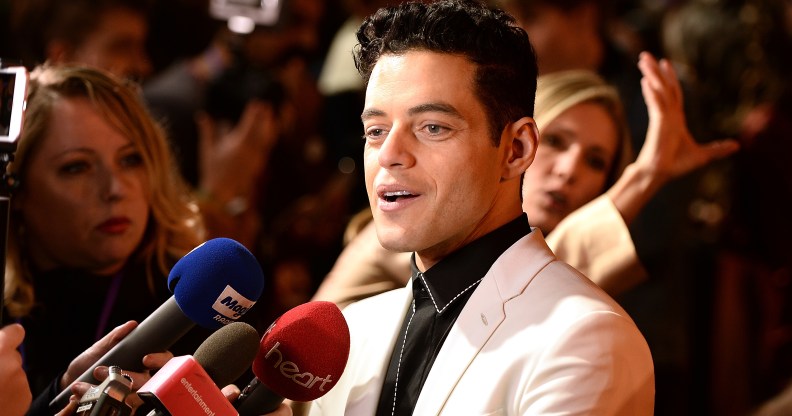
Rami Malek at the world premiere of Bohemian Rhapsody (Eamonn M. McCormack/Getty)
Rami Malek has declined to say that Freddie Mercury was a gay icon.
The US actor, who plays Mercury in the new biopic Bohemian Rhapsody, told INTO magazine that “‘icon,’ I think, encompasses whatever, the way you identify, I think.
“If he’s an icon to one, there’s no reason it requires another adjective, as far as I see it,” added the star, who rose to prominence as the main character in Mr Robot.
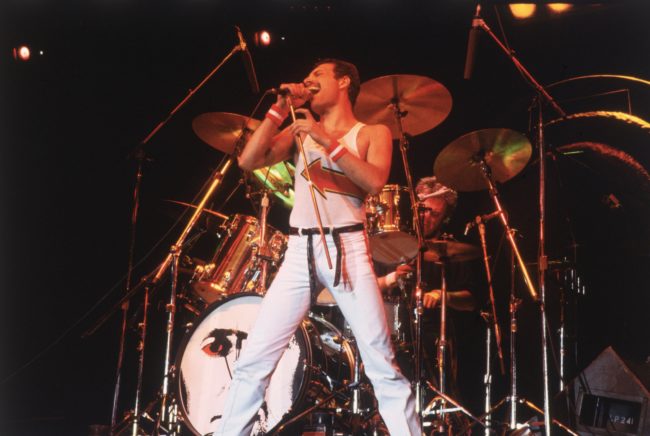
Freddie Mercury in action in 1982 (Hulton Archive/Getty)
In the rest of his awkward answer to the question of whether Mercury was a gay icon, Malek added: “I think the way—what’s really great about him is that he never wanted to or thought about himself as being boxed into anything.
“He just was. I mean, he even—I’ve heard him say when asked, he says: ‘I’m just me. I’m just me.'”
The queer British star became the most famous victim of the AIDS crisis when he died in 1991.
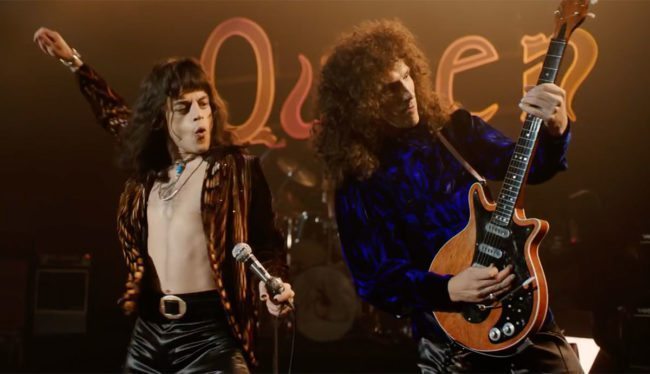
A shot from Bohemian Rhapsody (Twentieth Century Fox)
The film, which has failed to impress critics so far, faced a protest about the NHS and its treatment of HIV at the London screening of its world premiere on Tuesday (October 23).
Campaigners from ACT UP London — a group fighting to end HIV — and the NHS Anti-Swindle Team, which wants to maintain a publicly run NHS, united to protest on the film’s purple carpet outside Wembley Arena.
Dressed in clothes reading: “Save Our NHS,” the demonstrators chanted: “HIV stigma is real life — not just fantasy” — a play on the lyric from “Bohemian Rhapsody” — before launching into a specially written version of the hit Queen song “Don’t Stop Me Now,” called “Don’t Cut Me Now.”
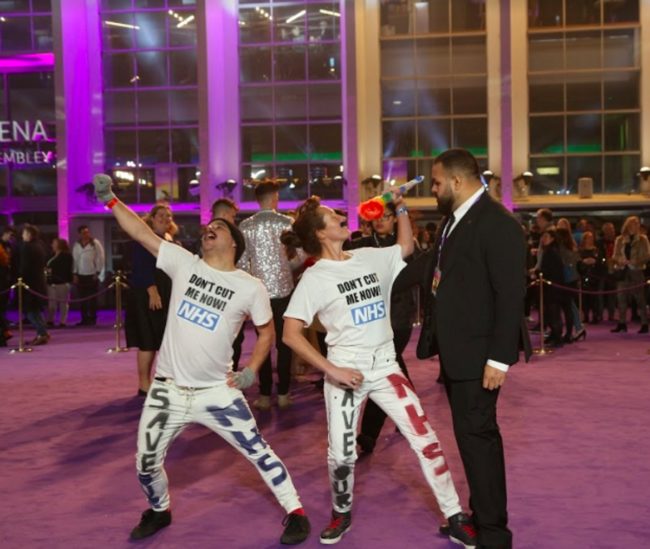
The protesters sang a version of “Don’t Stop Me Now” (Levi Hinds)
They sang: “Don’t cut me now / I’m entitled to free healthcare / I don’t pay at all. Don’t cut me now / If I wanted US healthcare / I’d give Branson a call.
“Don’t cut me now – ’cause we’re having a s**t time / Don’t cut me now – yes we’re having a sick time / I don’t wanna die at all!” the song concluded.
Bohemian Rhapsody, which chronicles Mercury’s rise to fame, was attacked earlier this year for its alleged straight-washing and lack of focus on HIV.
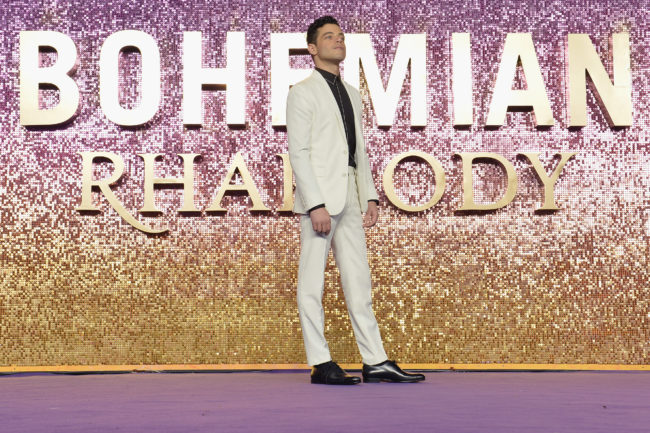
The film has received criticism for alleged straightwashing (Jeff Spicer/Getty)
Former American Gods and Hannibal showrunner Bryan Fuller tweeted that the trailer included “gay/bi superstar Freddie Mercury flirting with and twirling with a woman but no indication of his love of men?”
He accused those in charge of the film of “#HETWASHING (hetero-washing) for marketing sakes.”
Fuller added: “I feel what the trailer is doing is queer-erasure. If they were out and proud with his bi-sexuality they would have indicated he was bi-sexual.”

